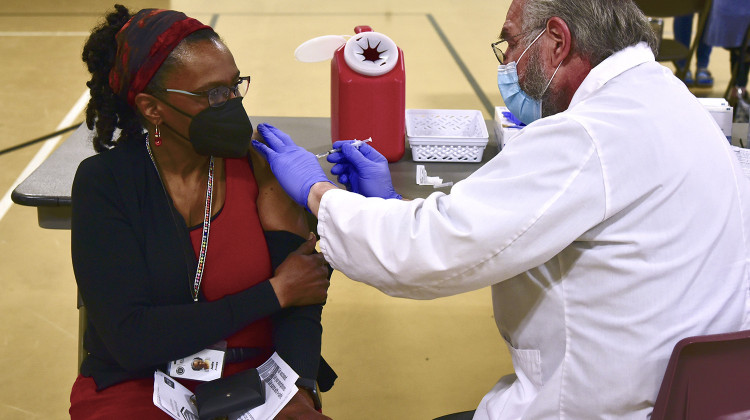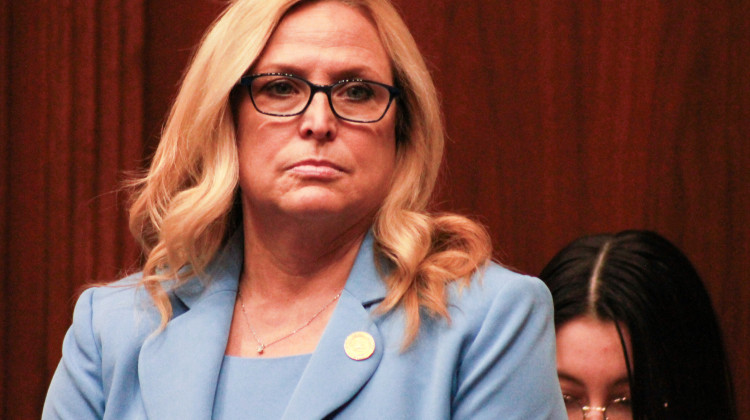
Sophie Paczesny, MD, PhD, professor of pediatrics and of microbiology and immunology at IU School of Medicine and a researcher at the Indiana University Melvin and Bren Simon Cancer Center.
Courtesy of IU Simon Cancer CenterWork to advance immunotherapy for cancer treatment is getting a boost in Indiana through “Cancer Moonshot” funding.
Congress set aside $1.8 billion to advance cancer therapy and detection.
One promising treatment is immunotherapy, which uses the body’s immune system to attack cancer. But getting to the tumor can be challenging.
Indiana University Simon Cancer Center researcher Sophie Paczesny and a doctor at Memorial Sloan Kettering have received $4.1 million to study tumor defense systems.
Paczesny says the object is to boost cancer-killing cells.
"You know it’s a balance in the tumor micro-environment between the good guy and the bad guy and you want more of the good guy that will kill the tumor," says Paczesny.
The work will be on pediatric and adolescent cancers. Paczesny says the study builds on research focused on leukemia.
"We really expect that this will be a big breakthrough and this will increase survivorship," says Paczesny.
The Cancer Moonshot funding was appropriated by Congress in 2016.
 DONATE
DONATE







 Support WFYI. We can't do it without you.
Support WFYI. We can't do it without you.